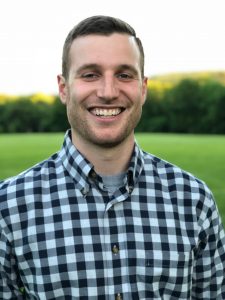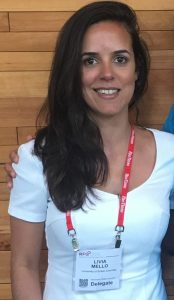IRES Seminar Series
Time: 12:30pm to 1:30pm (every Thursday)
Location: AERL Theatre (room 120), 2202 Main Mall
*********************************************************************************
*** CLICK HERE TO VIEW RECORDING OF DAVID’S PRESENTATION (LIVIA’S PRESENTATION IS UNAVAILABLE)***
From groundwork to implementation: a longitudinal study of coastal adaptation planning in Nova Scotia, Canada
David will present initial findings from his analysis of coastal adaptation planning in Nova Scotia and discuss next steps for his research. What have communities accomplished so far, and what will they do next?
Coastal communities in Nova Scotia are at risk of impacts resulting from the anticipated outcomes of climate change in the region, including sea level rise and the increased frequency and intensity of storms. This study will examine the implementation of coastal adaptation actions across the province, using the Municipal Climate Change Action Plans (MCCAPs) from 53 coastal municipalities as a basis for investigation. Two overarching research questions are asked: 1) what types of coastal adaptation actions were proposed in the MCCAPs and which actions have been implemented since; and 2) what are some of the common local factors that have influenced the success of implementation? This study will evaluate the state of adaptation in Nova Scotia and offer insights for future policy development.
David Righter

IRES MSc Program
Bio:
David joined IRES in September 2018 as a MSc student under the supervision of Dr. Stephanie Chang. His research focuses on climate change adaptation and natural disaster resilience in coastal communities of BC and Nova Scotia. As a Research Assistant with the Resilient-C Project, David contributes to an online platform that connects communities in their efforts to reduce risk. He hopes to demonstrate that a growing network of communities sharing knowledge and experiences will not only benefit the individual contributors, but help to build resilience across entire regions.
Dilemmas in managing non-technical risks – a mining case
This research is aligned with findings from University of Queensland (Sustainable Minerals Institute) suggesting that there is a biased emphasis on quantifying risks to the project (inbound risks) during project evaluation decisions, such that risks to people (outbound risks) may be overlooked. Hence, this research aimed to shed light on the puzzle of how non-technical risks are being conceptualized within the mining sector. Through interviews with mining practitioners, it was found that there are gaps in understanding between practitioners working in corporate sustainability vs. project teams. Although risks to people are well understood by sustainability professionals, they are seldom effectively integrated into technical considerations of large capital allocations decisions.
The presentation will focus on four areas: (1) key risks assessed in project evaluations; (2) non-technical risks valuation methodologies (3) Main root causes for sustainability being retrofitted (4) High-level recommendations for the integration of sustainability in capital allocations of major projects in the mining sector.
Livia Mello

IRES MSc Program
Bio:
Livia is a sustainability professional with an academic and professional background in business and sustainability. She has Bachelor of Commerce 07’ (McGill University) and a Master of Business Administration in Sustainability and Finance 11’ (Schulich School of Business).
After working for large infrastructure projects within the mining sector, Livia realized that non-technical risks were being disregarded and/ or undervalued in large project decisions. This led her to decide to go back to academia to contribute to integration of sustainability risks and opportunities in capital evaluations. Since the majority of the economic and environmental footprint is decided in the project stage, the latter needs to receive more attention, research and resources This IRES MSc. research is supervised by Nadja Kunz, with support from committee members Jocelyn Fraser and Dirk Van Zyl.